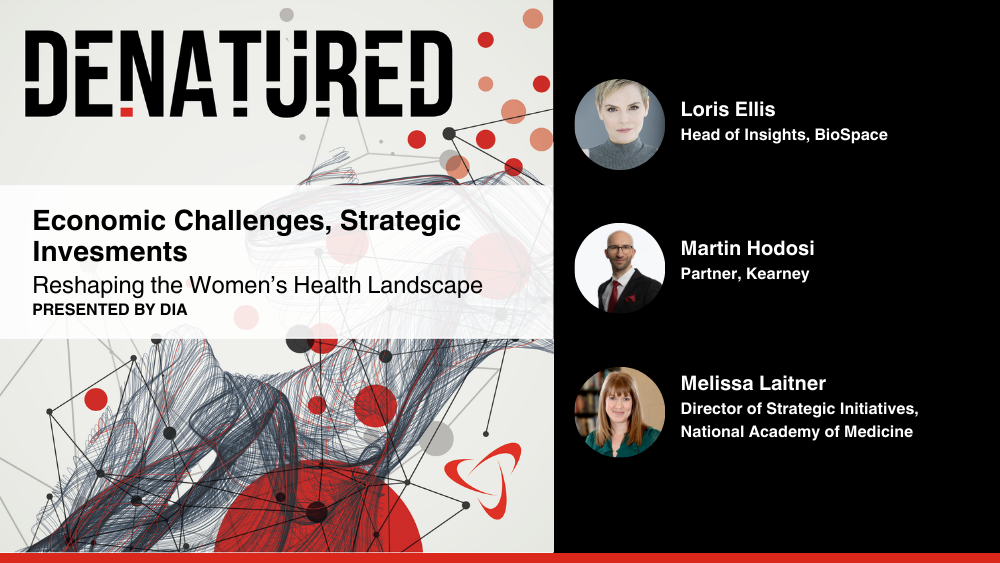In QWINT-2, efsitora helped adults naïve to insulin therapy currently using and not using GLP-1 receptor agonists achieve an A1C below 7%
Detailed results were published in The New England Journal of Medicine and simultaneously presented at the European Association for the Study of Diabetes (EASD) Annual Meeting 2024
INDIANAPOLIS, Sept. 10, 2024 /PRNewswire/ -- Eli Lilly and Company (NYSE: LLY) today announced detailed results from the QWINT-2 phase 3 trial evaluating once-weekly insulin efsitora alfa (efsitora) compared to once-daily insulin degludec in adults with type 2 diabetes using insulin for the first time (insulin naïve). The data were published in The New England Journal of Medicine (NEJM) and simultaneously presented today at the European Association for the Study of Diabetes (EASD) Annual Meeting 2024.
In the trial, efsitora met the primary endpoint of non-inferior A1C reduction. For the efficacy estimand1,2, efsitora reduced A1C by 1.34% compared to 1.26% for insulin degludec resulting in an A1C of 6.87% and 6.95% respectively3 at 52 weeks.
Additionally, participants taking efsitora achieved 45 minutes more time in range4 per day, a key secondary endpoint, without additional time in hypoglycemia (glucose <54 mg/dL) in comparison to insulin degludec for the efficacy estimand.
"Traditionally, basal insulins are dosed once a day — a treatment schedule that can make compliance difficult for a significant portion of people living with type 2 diabetes," said Carol Wysham, M.D., clinical professor of medicine at the University of Washington School of Medicine. "Efsitora has the potential to address treatment burden and improve adherence — all while lowering A1C. These results can make a significant impact for people living with type 2 diabetes looking for a once-weekly option that provides similar outcomes as daily insulins."
Full Results
QWINT-2 Study: Primary and Secondary Endpoints | ||
Efficacy Estimand | Treatment-Regimen Estimand5 | |
Primary Endpoint – A1C Reduction (Resulting A1C) at Week 52 | ||
Efsitora | -1.34% (6.87%) | -1.26% (6.97%)6 |
Degludec | -1.26% (6.95%) | -1.17% (7.05%)7 |
Secondary Endpoint – A1C Reduction in Participants using GLP-1s (Resulting A1C) at Week 52 | ||
Efsitora | -1.30% (6.90%) | -1.26% (6.96%) |
Degludec | -1.28% (6.92%) | -1.19% (7.02%) |
Secondary Endpoint – A1C Reduction in Participants not using GLP-1s (Resulting A1C) at Week 52 | ||
Efsitora | -1.38% (6.85%) | -1.26% (6.97%) |
Degludec | -1.23% (6.99%) | -1.15% (7.08%) |
Secondary Endpoint – Percent Time in Range During the 4 Weeks Prior to Week 52 | ||
Efsitora | 68.86 % | 64.27 % |
Degludec | 65.75 % | 61.18 % |
"For the past century, we've been searching for the next scientific breakthrough that would alleviate the complexity that comes with starting insulin treatment," said Jeff Emmick, M.D., Ph.D., senior vice president, product development, Lilly. "With these results, we believe we're headed towards a future where people with type 2 diabetes who use basal insulin can achieve their desired results with a simple treatment option like efsitora."
In the trial, efsitora demonstrated a safety profile similar to daily insulins. There were no severe hypoglycemic events reported during treatment with efsitora compared to six reported with insulin degludec. Overall hypoglycemia rates in the study were low, with estimated combined rates of severe or clinically significant (blood glucose <54 mg/dL) hypoglycemic events per patient-year of exposure of 0.58 with efsitora vs. 0.45 with insulin degludec. Estimated combined rates of severe or clinically significant nocturnal hypoglycemic events per patient-year of exposure were 0.08 with both efsitora and insulin degludec. Additionally, rates of hypoglycemia were similar among people currently using GLP-1s and those not using GLP-1s. Adverse events were similar between treatment groups in the trial.
Detailed results for QWINT-5 are also being presented at EASD and simultaneously published in The Lancet.
About the QWINT clinical trial program
The QWINT phase 3 global clinical development program for insulin efsitora alfa (efsitora) in diabetes began in 2022 and has enrolled more than 4,000 people living with type 1 or type 2 diabetes across five global registration studies.
QWINT-2 (NCT05362058) was a parallel-design, open-label, treat-to-target, randomized controlled clinical trial comparing the efficacy and safety of efsitora as a once-weekly basal insulin to insulin degludec for 52 weeks in insulin-naïve adults with type 2 diabetes. The trial randomized 928 participants across the U.S., Brazil, Canada, China, Czechia (Czech Republic), Germany, Greece, Japan, Korea, Mexico and Puerto Rico to receive efsitora once weekly or insulin degludec once daily administered subcutaneously. The primary objective of the trial was to demonstrate non-inferiority in reducing A1C at week 52 with efsitora compared to insulin degludec. The trial was also designed to assess efficacy and safety for patients using and not using GLP-1 receptor agonists.
About insulin efsitora alfa
Insulin efsitora alfa (efsitora) is a once-weekly basal insulin, a fusion protein that combines a novel single-chain variant of insulin with a human IgG2 Fc domain. It is specifically designed for once-weekly subcutaneous administration, and with its low peak-to-trough ratio, it has the potential to provide more stable glucose levels (less glucose variability) throughout the week. Efsitora is in phase 3 development for adults with type 1 and 2 diabetes.
About Lilly
Lilly is a medicine company turning science into healing to make life better for people around the world. We've been pioneering life-changing discoveries for nearly 150 years, and today our medicines help more than 51 million people across the globe. Harnessing the power of biotechnology, chemistry and genetic medicine, our scientists are urgently advancing new discoveries to solve some of the world's most significant health challenges: redefining diabetes care; treating obesity and curtailing its most devastating long-term effects; advancing the fight against Alzheimer's disease; providing solutions to some of the most debilitating immune system disorders; and transforming the most difficult-to-treat cancers into manageable diseases. With each step toward a healthier world, we're motivated by one thing: making life better for millions more people. That includes delivering innovative clinical trials that reflect the diversity of our world and working to ensure our medicines are accessible and affordable. To learn more, visit Lilly.com and Lilly.com/news, or follow us on Facebook, Instagram and LinkedIn. P-LLY
Cautionary Statement Regarding Forward-Looking Statements
This press release contains forward-looking statements (as that term is defined in the Private Securities Litigation Reform Act of 1995), including statements about insulin efsitora alfa as a potential treatment for people with type 2 diabetes and the timeline for future readouts, presentations, and other milestones relating to insulin efsitora alfa and its clinical trials, and reflects Lilly's current beliefs and expectations. However, as with any pharmaceutical product, there are substantial risks and uncertainties in the process of drug research, development, and commercialization. Among other things, there is no guarantee that planned or ongoing studies will be completed as planned, that future study results will be consistent with study results to date, that insulin efsitora alfa will prove to be a safe and effective treatment for type 2 diabetes, that insulin efsitora alfa will receive regulatory approval, or that Lilly will execute its strategy as expected. For further discussion of these and other risks and uncertainties that could cause actual results to differ from Lilly's expectations, see Lilly's Form 10-K and Form 10-Q filings with the United States Securities and Exchange Commission. Except as required by law, Lilly undertakes no duty to update forward-looking statements to reflect events after the date of this release.
1 The efficacy estimand represents the treatment effect had all participants adhered to the study drug without initiating rescue therapy for persistent severe hyperglycemia.
2 95% CI for treatment difference (-0.22% to 0.06%).
3 From a baseline A1C of 8.21% for efsitora and 8.23% for insulin degludec.
4 Blood glucose 70-180 mg/dL.
5 Treatment-regimen estimand represents the efficacy irrespective of adherence to the investigational medicine or introduction of rescue therapy for persistent severe hyperglycemia.
6 From a baseline A1C of 8.21% for efsitora and 8.24% for insulin degludec.
7 95% CI for treatment difference (-0.22% to 0.04%).
Refer to: | Niki Smithers; smithers_niki@lilly.com, 317-358-9074 (Media) |
Joe Fletcher; jfletcher@lilly.com, 317-296-2884 (Investors) |
![]() View original content to download multimedia:https://www.prnewswire.com/news-releases/once-weekly-dose-of-insulin-efsitora-alfa-delivers-a1c-reduction-consistent-with-the-most-advanced-daily-insulin-in-people-with-type-2-diabetes-302243899.html
View original content to download multimedia:https://www.prnewswire.com/news-releases/once-weekly-dose-of-insulin-efsitora-alfa-delivers-a1c-reduction-consistent-with-the-most-advanced-daily-insulin-in-people-with-type-2-diabetes-302243899.html
SOURCE Eli Lilly and Company






